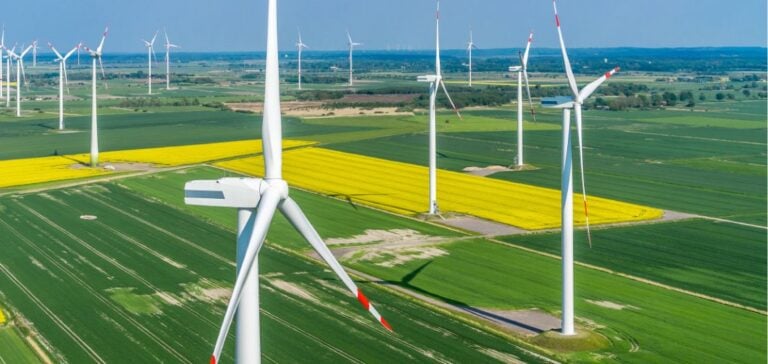Germany has reached a new milestone in its energy transition, producing 58% of its electricity from renewable sources in the first half of 2024. This increase, compared with 52% for the same period in 2023, reflects sustained growth in the renewable energies sector.
Performance of different renewable sources
According to data from the Center for Solar Energy and Hydrogen Research (ZSW) and the German Federation of Energy and Water Industries (BDEW), the breakdown of renewable electricity production is as follows: 24% from onshore wind power, 14% from photovoltaics, 9% from biomass, 5% from hydroelectricity, 5% from offshore wind power and 1% from municipal waste.
Impact and Growth of Infrastructure
Solar energy production has risen considerably, reaching 37 billion kilowatt-hours thanks to the record expansion of photovoltaic installations in 2023. In June, solar production exceeded 10 billion kilowatt-hours for the first time in a single month, while hydroelectricity generated 12 billion kilowatt-hours.
Sector Challenges and Needs
Kerstin Andreae, Chairman of the BDEW Board of Directors, said that these results were the fruit of sustained expansion in wind and solar infrastructure. However, she stressed the need to develop gas-fired power plants capable of running on hydrogen to ensure grid stability in the event of variability in renewable energies.
Strategy and future prospects
Germany’s results demonstrate the effectiveness of investment in renewable energies, and underline the importance of technological innovation in meeting the challenges of intermittency. The emphasis is on diversifying sources and developing supporting infrastructure to maintain reliable, sustainable power generation.






















